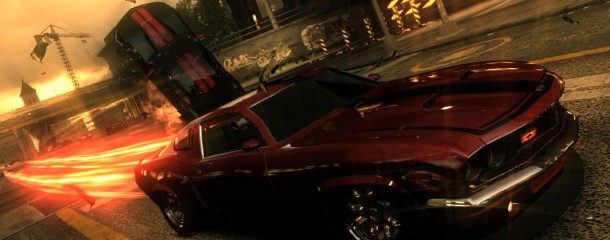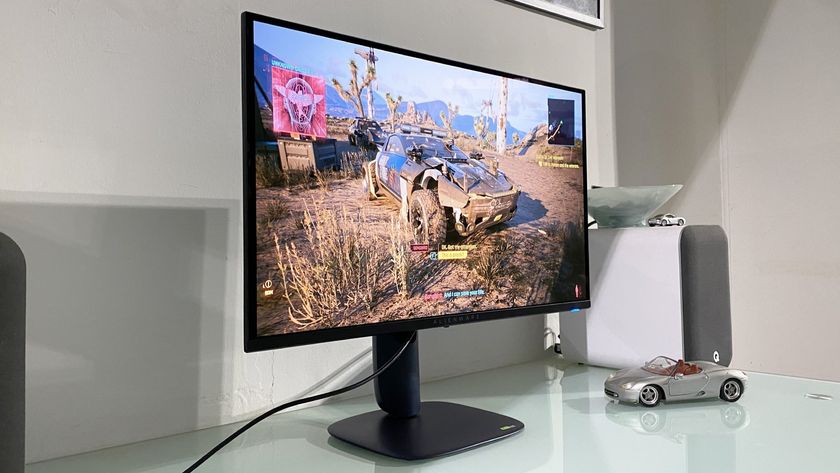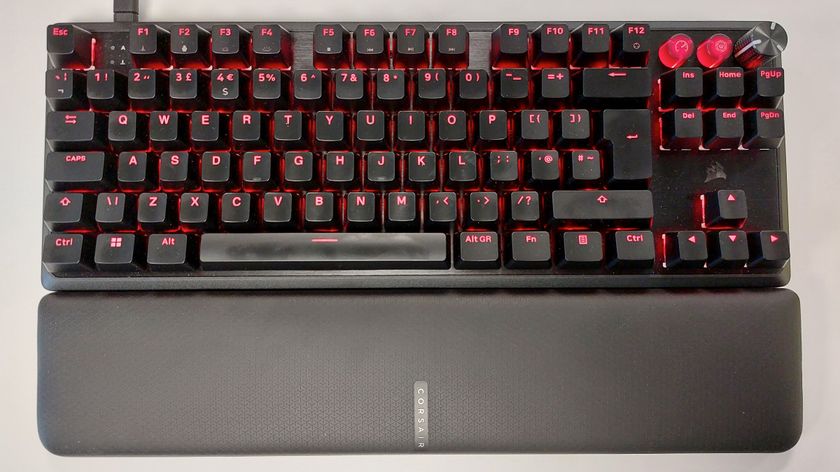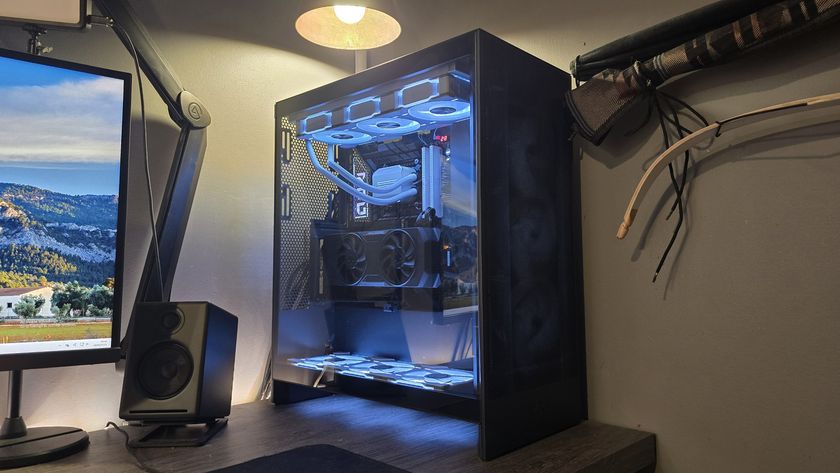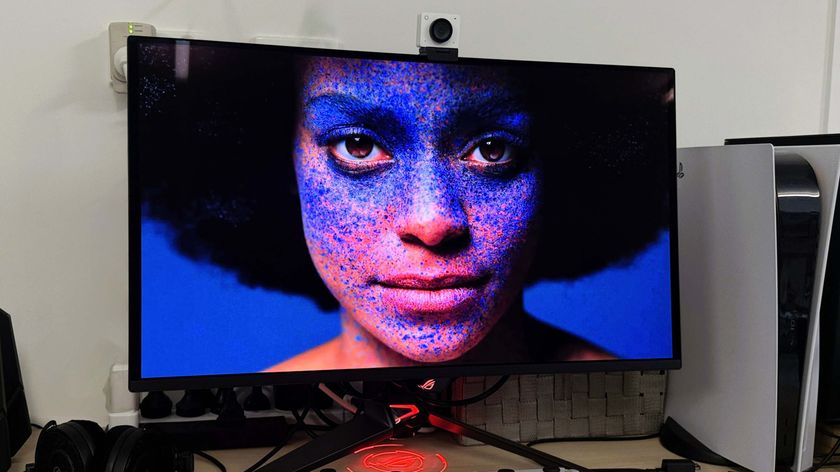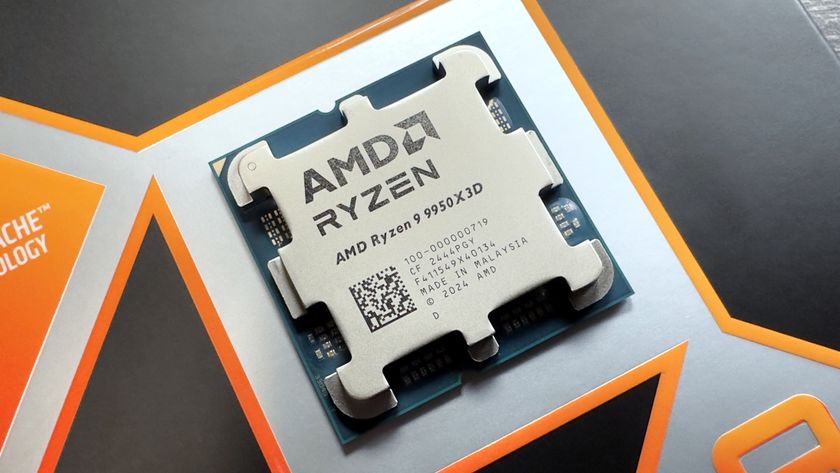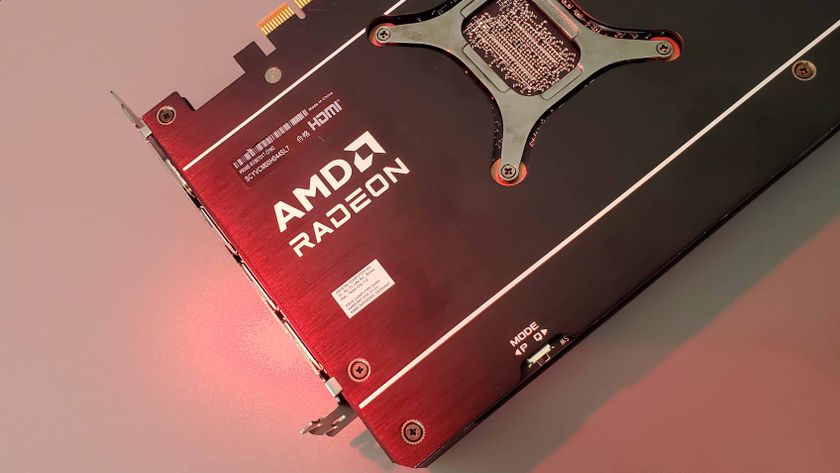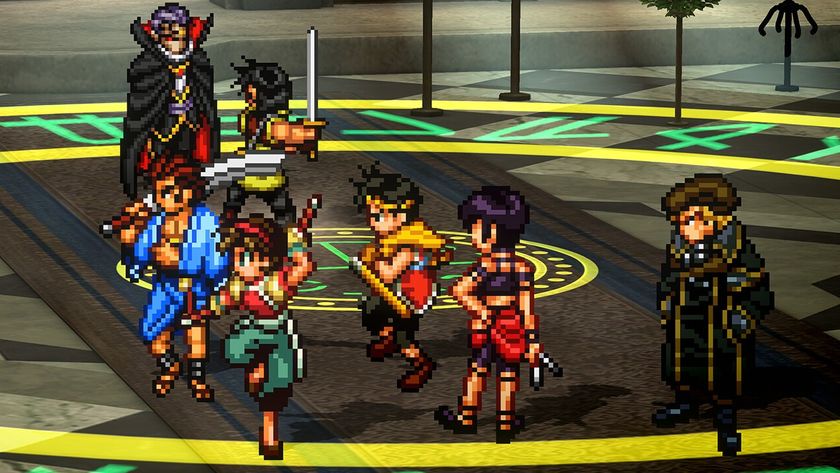Our Verdict
Confounds your expectations to create a racing game as much about finesse as destroying buildings.
PC Gamer's got your back
FlatOut was a stunt racer with a mode in which players attempted to launch their drivers through the windscreen of their cars and over obstacles. Ridge Racer is best remembered as an arcade racer about blue skies and power slides. These two games combining is only the first counter-intuitive thing about Unbounded.
The second comes in the form of concrete pillars, low walls and lamp posts. Crashing into any of these obstacles won't slow you down, but will help fill your boost meter. Filling that boost meter completely, via perfect power slides, clean overtaking or hitting roadside paraphernalia, lets you supercharge your car for a few seconds. Using it at the right time can give you the extra speed you need to close the gap between you and the race leaders, the power you need to create shortcuts by punching through certain destructible buildings, or to frag other cars off the track in spectacular Burnout-style crashes. Avoid trouble, race in a perfect line and, paradoxically, you'll do worse than you would if you careen into concrete, brick and metal.
All of these actions make winning races in Unbounded about perfecting a special kind of messy finesse. Perfectly execute a drift around a corner and you'll fill your boost meter. Activate it on the next bend and, if you've timed it well, the thrust will extend your drift (Achievement get!), let you frag a rival car (Achievement get!), smash through a roadside billboard (Achievement get!), and launch up a ramp to catch a few seconds of air (Achievement get!). Each one of these actions refills your boost meter, which means that by the time you hit the ground, you can trigger it again.
Winning races in Unbounded isn't about finding the cleanest racing line, then. It's about turning your car into a wrecking ball. If half the track isn't on fire by the time you finish, you're doing it wrong. It's great that Unbounded provides this high ceiling on skill, where the best players can just keep getting better, by mastering drifting, chaining their boosts to ridiculous perfection, and hitting just the right number of low walls to get the best time without taking too much damage. The problem is that the game is outright incompetent at explaining any of this to you, or at giving you the necessary feedback when you're doing it wrong.
It's not just low walls, which logic would normally require you to avoid. Even once you've worked out that destruction is a good thing, the third counter-intuitive element in Unbounded is drifting. Perfecting a time in Ridge Racer has always been about riding that edge – ridge – between taking a corner at ridiculous speed and spinning out or hitting the walls. Unbounded wraps that experience up in the drift button.
Take a corner at speed, tap the drift button, and you can throw the rear end of your car into the corner. Massage the accelerator and the brake correctly and you can impressively and satisfyingly exit straight out of each corner. Then you'll finish the race last.
You can keep trying, and trying, and trying, and for all the world it'll look like you're doing it right. Then you'll read something on t'internet that says that you should hold down the drift button all the way through the corner. So you do, and it's not an instant revelation. It'll sort of look the same, only now you'll start to win races. It turns out that while you can drift without it, holding the drift button means you keep more of your speed in the corner. It makes all the difference in the world.
There's no in-game tutorial that explains any of this, which is bad enough, but the fuzziness that exists between success and failure means that you might never work out your mistake. Even now, after all I've played it, I have this uncomfortable sense that maybe I'm doing it wrong. I win races, sometimes. I also still place last sometimes. That's in part because Unbounded is hard, in a way that Ridge Racer games always were, but in a way that few arcade-style racers have had the guts to be since. You'll be driving well and a rival car will frag you from behind, knocking you out of the race for a few seconds. It's not quite Mario Kart-levels of frustration, but it's sometimes enough to take you from placing in the top three to dead last.
Similarly, sometimes you'll be driving well and a single mistake will see you wreck your car, come to a dead stop, or spin out in a corner and end up facing the wrong way. Again you might drop 10 places with no chance of catching up.
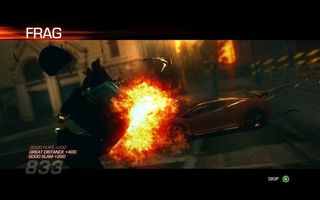
I also – and I can't confirm this – have a slight fear that the game uses rubber banding. When you're driving, the lap number and the time between you and the nearest car is displayed in big, bold letters on the architecture around the track. It's a really nice bit of visual design, as effective here as it is in Splinter Cell: Conviction. But in one instance, a sign in front told me I was “13 seconds ahead” of 2nd place. A moment later it updated and read “4 seconds ahead”. My brain either switched off for 10 seconds, or the game gives helpful nudges to offscreen AI racers. Either of these options is mildly troubling.
Thankfully, despite the difficulty, the game is generous with achievements and unlocks. Even when you're driving badly you'll regularly receive access to new cars, new districts and new races, as well as constant reassurance. You always feel like you're making progress even if, like me, you worry that you're not getting any better.
Aside from the standard Domination races, there are a couple of other occasional race modes, including the drift challenges in which you extend your ticking time limit by successfully power sliding. The best, however, are the frag challenges. With an almost constantly full boost meter, you have a time limit in which to destroy as many cars as possible. The first of these puts you inside a truck, surrounded by police cars, and it's ridiculously good, smashy fun.
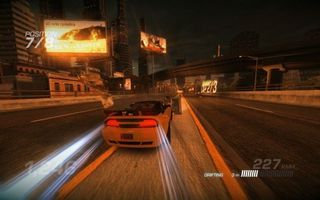
While unlocking new racing goodies, you'll also receive new blocks for the game's track builder.
First things first: the track builder was completely broken at release, and trying to launch it via the game's menu caused an immediate crash to desktop. Developers Bugbear released a patch that fixed the problem within a couple of days, but that's not good enough. Did no one notice before release that a major part of their game simply didn't work on a PC?
Now that it's fixed, it's a wonderful addition to the series, and perfect for the PC. You construct tracks on a grid, connecting together chunks of track – corners, straights, bridges, tunnels – to create the course. Once you have your desired layout, you can hop in and decorate it with objects. My track 'Wangtown' (see boxout) in the city of GMan-hattan has an area I call Petrol Station alley – a dozen petrol stations, three gas pumps apiece, line the track leading up to a bridge. It's gives Wangtown an explosive finish. Ahem.
It's not as flexible or as core to the game as Trackmania's own track builder, but it extends the life of the game beyond the already robust provided tracks. Once you've finished your design, you can upload it to a central repository. Or, if you're not feeling creative yourself, you can download the tracks that others have made. Most of these are gimmick tracks like mine, focused on long tunnels, hundreds of exploding barrels, or AI-confounding loopthe- loops – but that just makes them all the more fun.
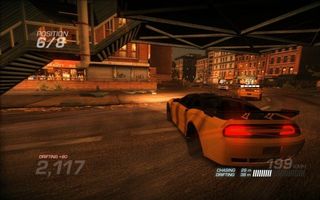
The real problem right now is that there are more player-made tracks than there are players. Using the built-in matchmaking option to find opponents, I've never been pitted against more than one other person. That's a pretty bad sign for a multiplayer mode designed for up to eight players, and by the time you read this review, there's a real chance that the game's multiplayer will already be empty.
Despite its frustrating inability to explain itself, Unbounded is often fun even when you're playing it badly. Plenty of recent games have tried to extend the explosive, action-packed racing genre and build upon what Burnout once got so right. Unbounded comes closer than any other attempt so far, finding a new formula by blending Ridge Racer's inner city drifting and combining it with FlatOut's building wrecking. Plus, now you've read this review, you know how to use the drift button correctly, and that the occasional shufty towards a brick wall can help as much as hurt.
If you need more than explosions and enjoy perfecting a skill through hundreds of hours of practise, Unbounded is one of the few arcade racing games that provides room for you to grow into it, along with a potentially endless stream of new tracks from the community to perfect. At the very least, do a YouTube search in a few months' time and marvel at the heights of mastery reached by those dedicated few willing to invest time in learning Unbounded's peculiar streets
Confounds your expectations to create a racing game as much about finesse as destroying buildings.
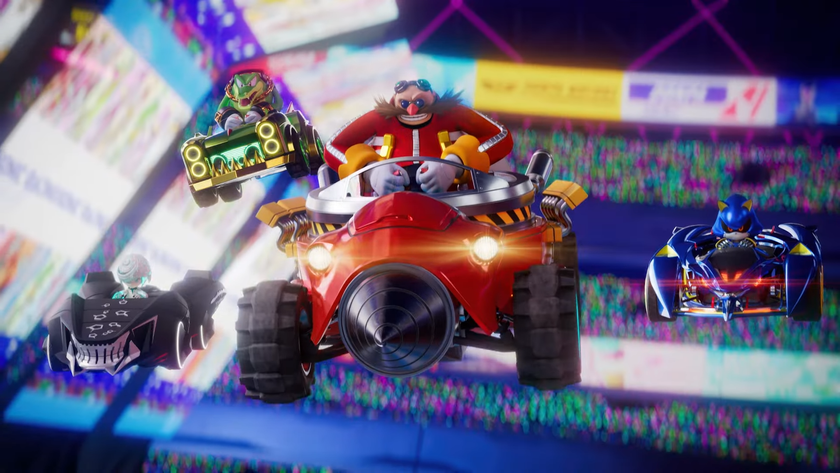
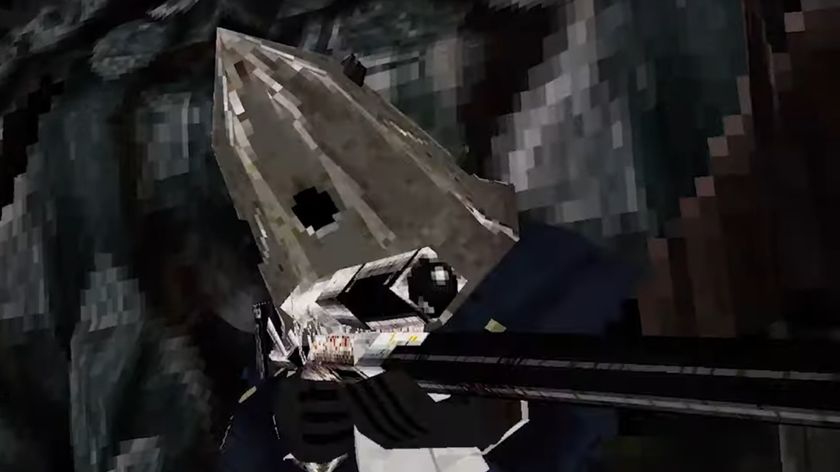
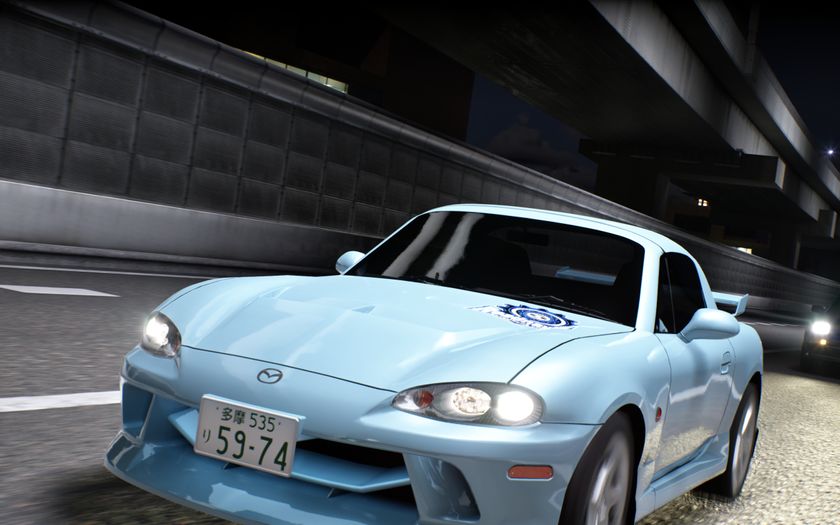
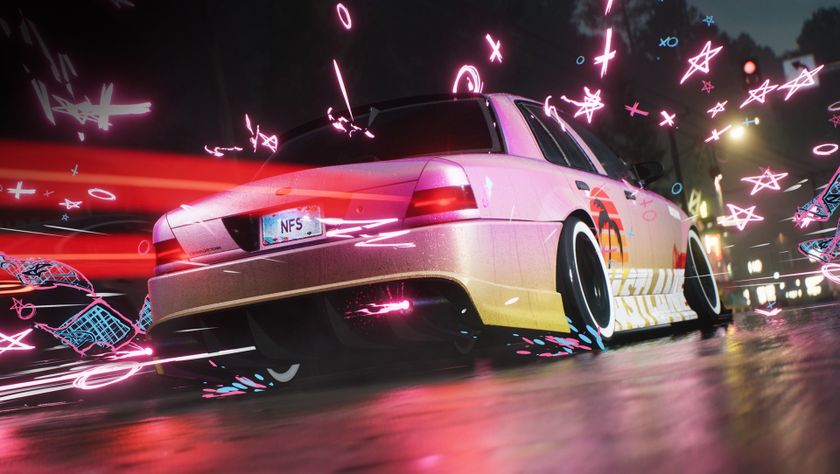
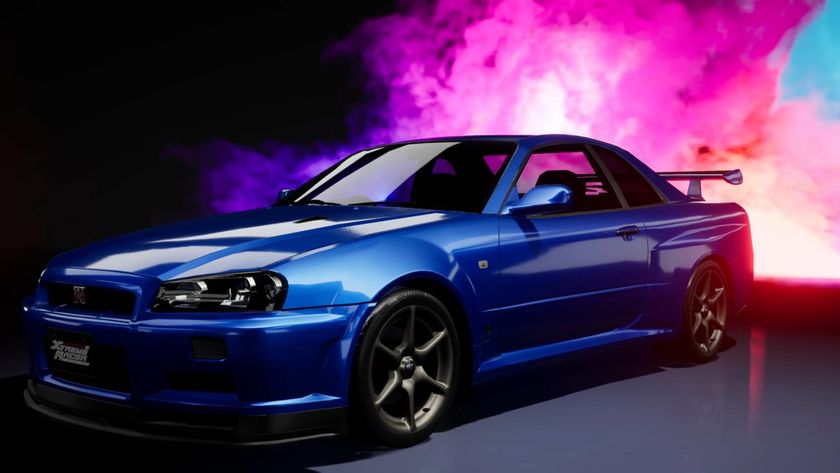

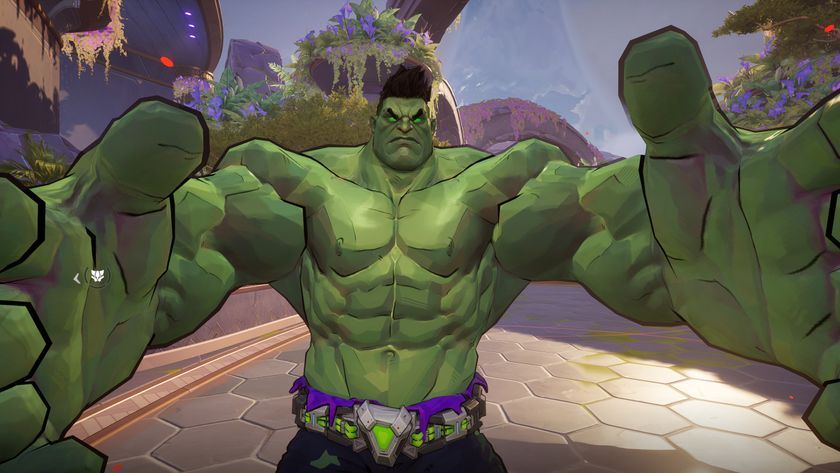
Marvel Rivals' growing roster of heroes scares me, but the game's director seems sure that all is under control: 'Everything is progressing smoothly'

Three lucky folks in India can win the dubious honour of buying an RTX 5080 GPU at Nvidia MSRP

Get ready to argue with your weird Uncle on Facebook again. Meta is rolling out its new fact checking solution to it's 190 million users in the United States
